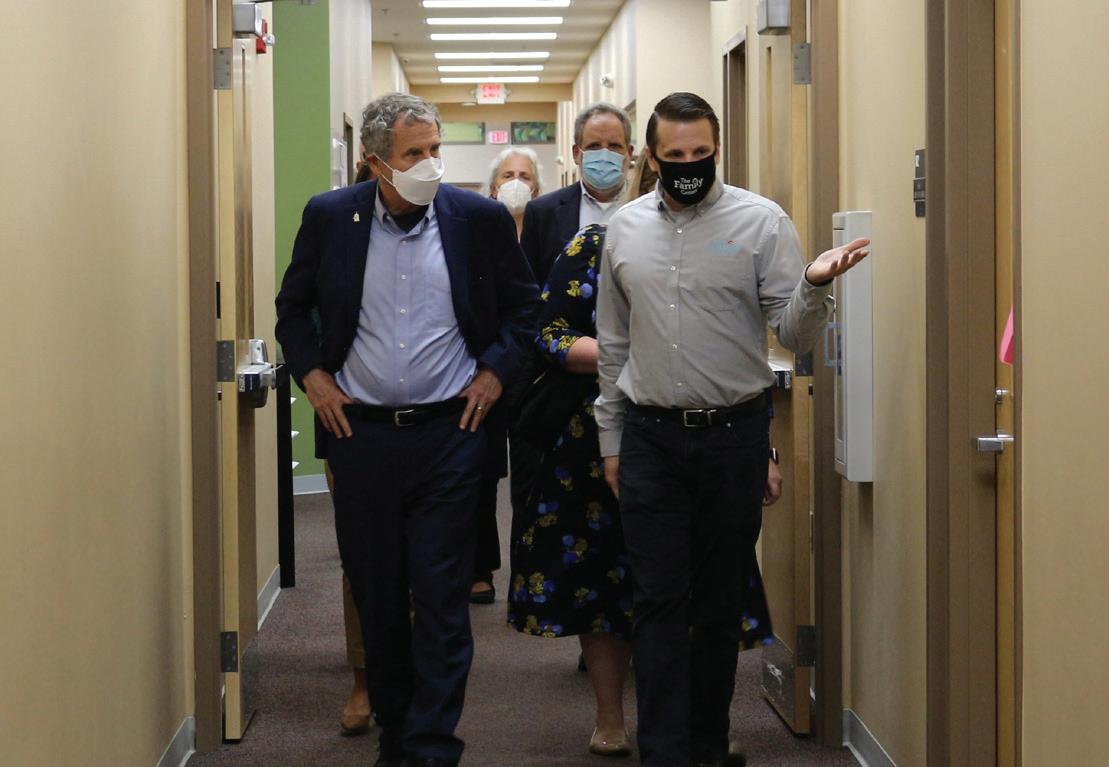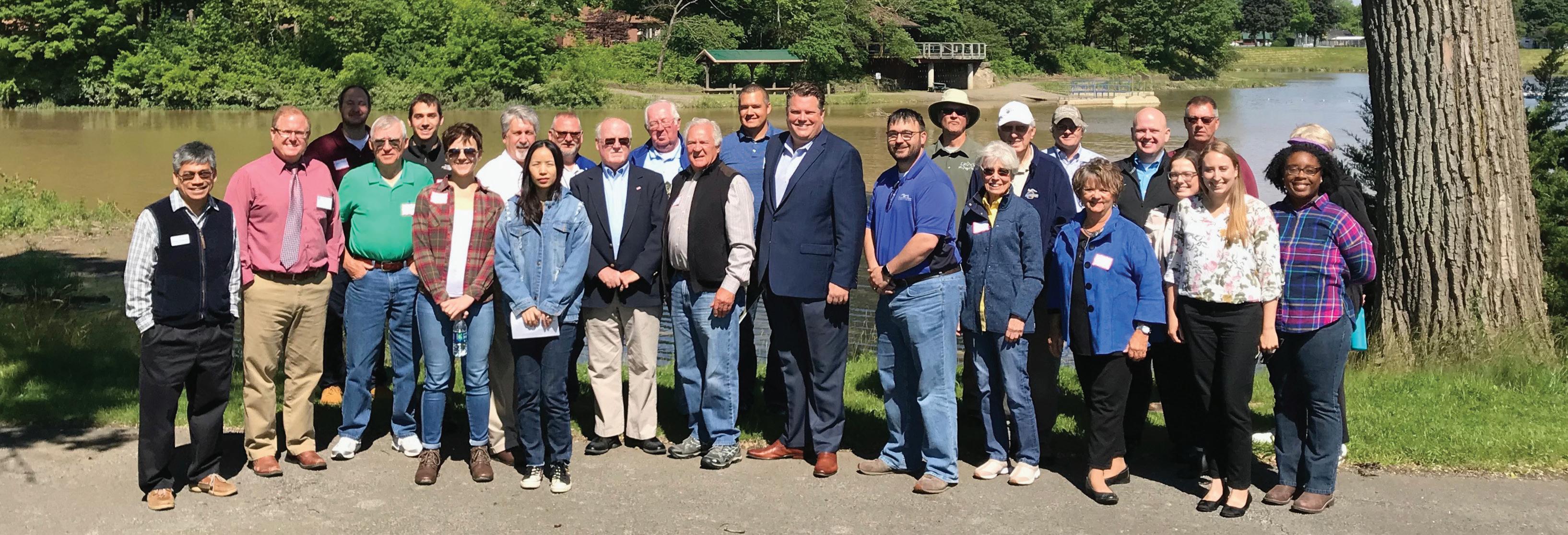
9 minute read
Advocacy in Hancock County
Championing the work of local nonprofit organizations
In the spring of 2018, The Community Foundation hosted a conversation on a new topic: nonprofit advocacy. What is it? Can local nonprofits participate in advocacy? How do we get started?
In a room full of educated, experienced and engaged nonprofit leaders from Hancock County the Foundation’s advocacy consultant, Jennifer Williams, asked the simple question, “Can anyone tell me who your State Senator and State Representative are?” After a lively welcoming conversation about the importance of advocating for their organizations, the room went quiet with looks of surprise on many faces. The participants didn’t know who represented their organizations in Columbus.
But that was about to change.
Setting the Stage
Throughout 2019, the Foundation continued the work started around nonprofit advocacy and hosted additional programs and one-on-one coaching sessions for organizations to learn more about integrating advocacy into their day-to-day work. These organizations worked closely with Jennifer, a consultant who has worked with the Foundation for more than 10 years. Jennifer works with many nonprofits in Findlay on issues ranging from board governance to strategic planning and financial accountability, but it wasn’t until President & CEO Brian Treece asked Jennifer if she knew anyone that could do work in advocacy that the Foundation leaned into Jennifer’s true passion: engaging nonprofits in the public policy process.
Jennifer’s career started at the Ohio Statehouse in the 1990s. Driven by a love for politics and process, she began as a page and constituent aide in the Ohio Senate learning the ins and outs of policy decision-making on the state level. After graduating from The Ohio State University, Jennifer moved to Washington, D.C. to learn more about the federal government process. While working on K Street, Jennifer represented government finance officials in Congress often educating Congressional staff on issues ranging from brownfield site revitalization to local government tax revenue issues. After a few years in D.C., Jennifer was given an opportunity to move back to Columbus to launch Ohio’s first advocacy program representing the nonprofit sector at the Statehouse. It was a return to the community she loved to help those around Ohio learn more about
how to advocate for the people and missions she cared so much about. It was that experience that created a big impact for nonprofits in Findlay through advocacy.
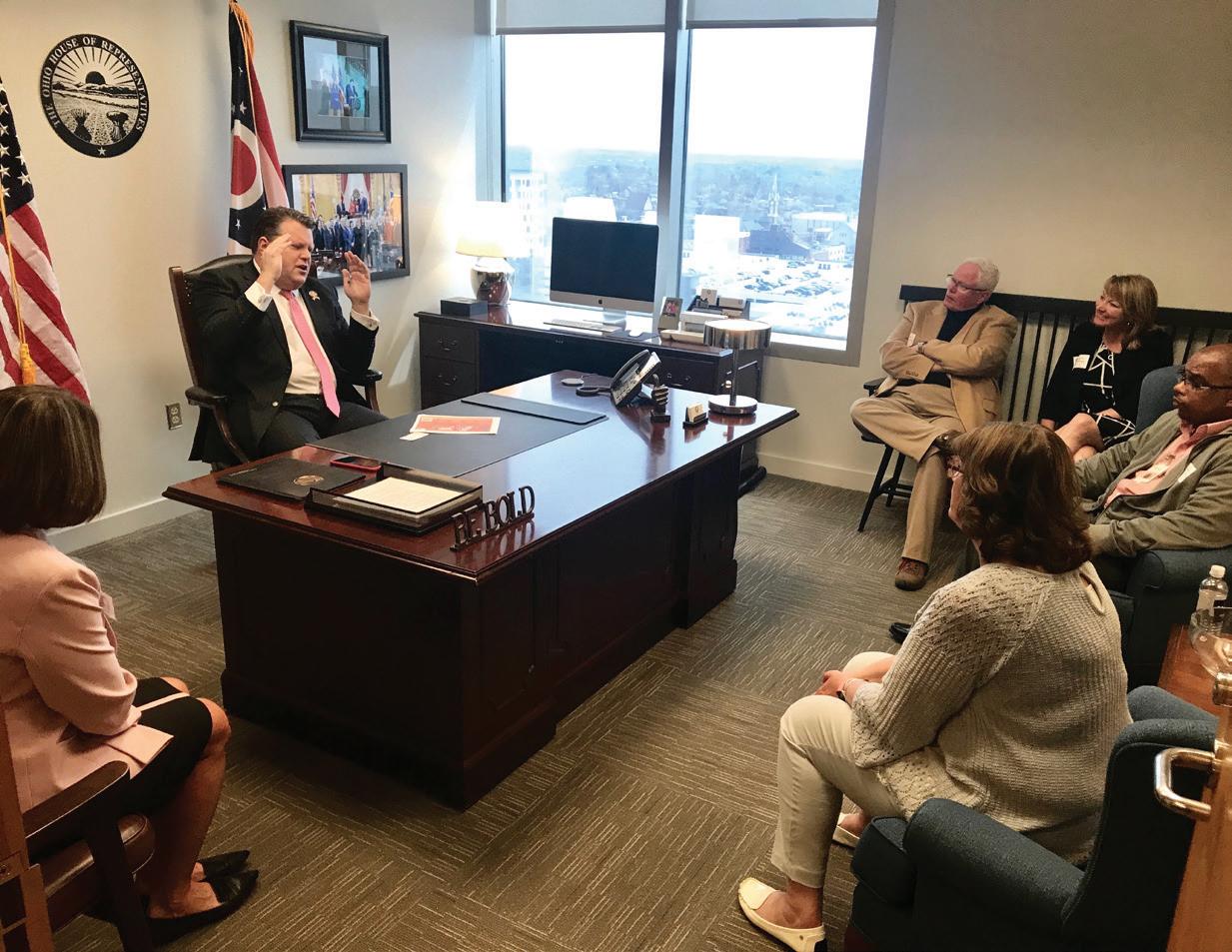
Also in 2019, the Foundation partnered with Jennifer to create the Advocacy Cohort, an opportunity for a few organizations to spend a year implementing advocacy work into their mission. Among the nonprofits participating was the Blanchard River Watershed Partnership (BRWP), a small organization with only one parttime staff member whose mission is to address problems and concerns that affect the health of the Blanchard River Watershed.
Prior to the Foundation beginning advocacy trainings, the BRWP had already recognized the importance of nonprofit advocacy. After forming an advocacy committee composed of board members, BRWP started thinking about how they could fulfill their mission and help the community with a more strategic advocacy effort. BRWP attended the Foundation’s first advocacy programs and coaching sessions in 2018 and it was through these opportunities that BRWP was able to develop a more deliberate approach to their advocacy work. As part of the cohort, BRWP board members and staff visited elected officials at the Statehouse, hosted a watershed tour featuring the Riverside Dam, and participated in one-on-one coaching sessions. Following the Riverside Dam tour, BRWP began focusing their advocacy effort on the restoration of the Riverside Dam area.
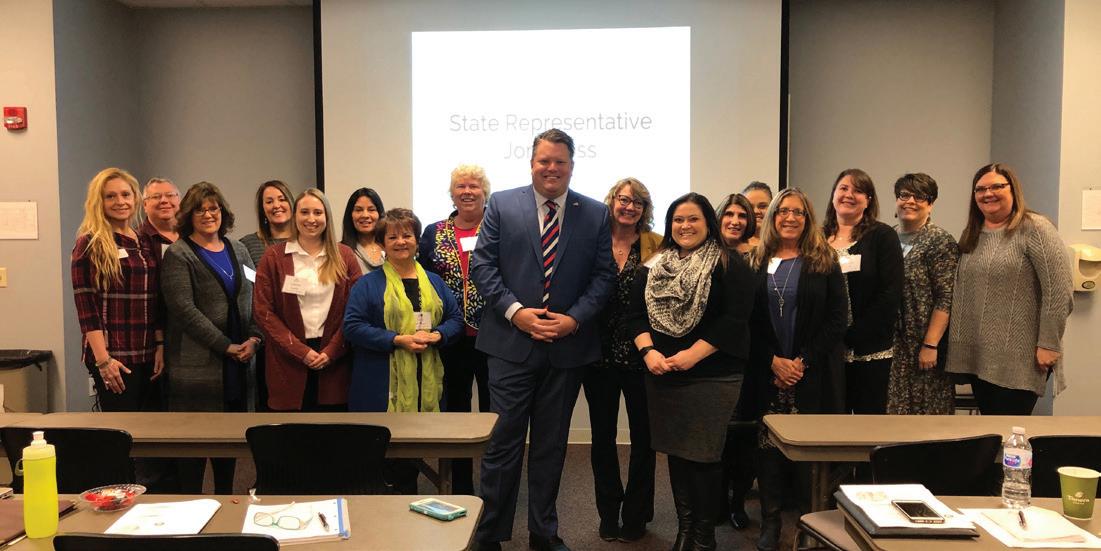
As BRWP and other nonprofits built on the momentum from the first two years of advocacy work, the Foundation launched a series of advocacy trainings and began identifying new organizations to participate in a second round of the Advocacy Cohort. It was February 2020 and
nonprofits in Hancock County were poised for what was promising to be another great year of advocacy work.
Critical Change
In March 2020, Jennifer was working from home at the start of the pandemic when the Foundation staff called to talk about challenges the organizations housed at The Family Center were having with helping visitors access benefits and services. Having spent years in state government, Jennifer had the connections to help The Family Center navigate these turbulent times. This was the catalyst for the Foundation to pivot its advocacy work to better support nonprofits and the community through the pandemic.
During the early stages of the pandemic, the Foundation’s advocacy work shifted to helping nonprofits navigate local, state and federal government to access emergency funding to retain staff and provide essential community services and resources. The Foundation served as a valuable resource to state officials including Rep. Jon Cross and Sen. Rob McColley who participated in monthly virtual meeting updates on food security issues, housing, mental health and more. After one meeting about food security and the challenges being faced by the West Ohio Food B-ank, Sen. McColley reached out to Campbell’s, located in his district, and Jennifer helped facilitate an in-kind donation of food valued over $120,000.
Jennifer was also able to help nonprofits understand the many funding opportunities available particularly from the Small Business Administration including the Paycheck Protection Program. This program was created to provide small businesses and nonprofits resources they needed to maintain payroll, hire back employees and cover overhead expenses but it was difficult to navigate for many small nonprofits that had never accessed public funding before. Jennifer helped identify which programs would be best suited for each nonprofit and assisted with the necessary paperwork to access funding. By the end of 2020, nonprofits in Findlay had secured more than $2 million through of the advocacy program.
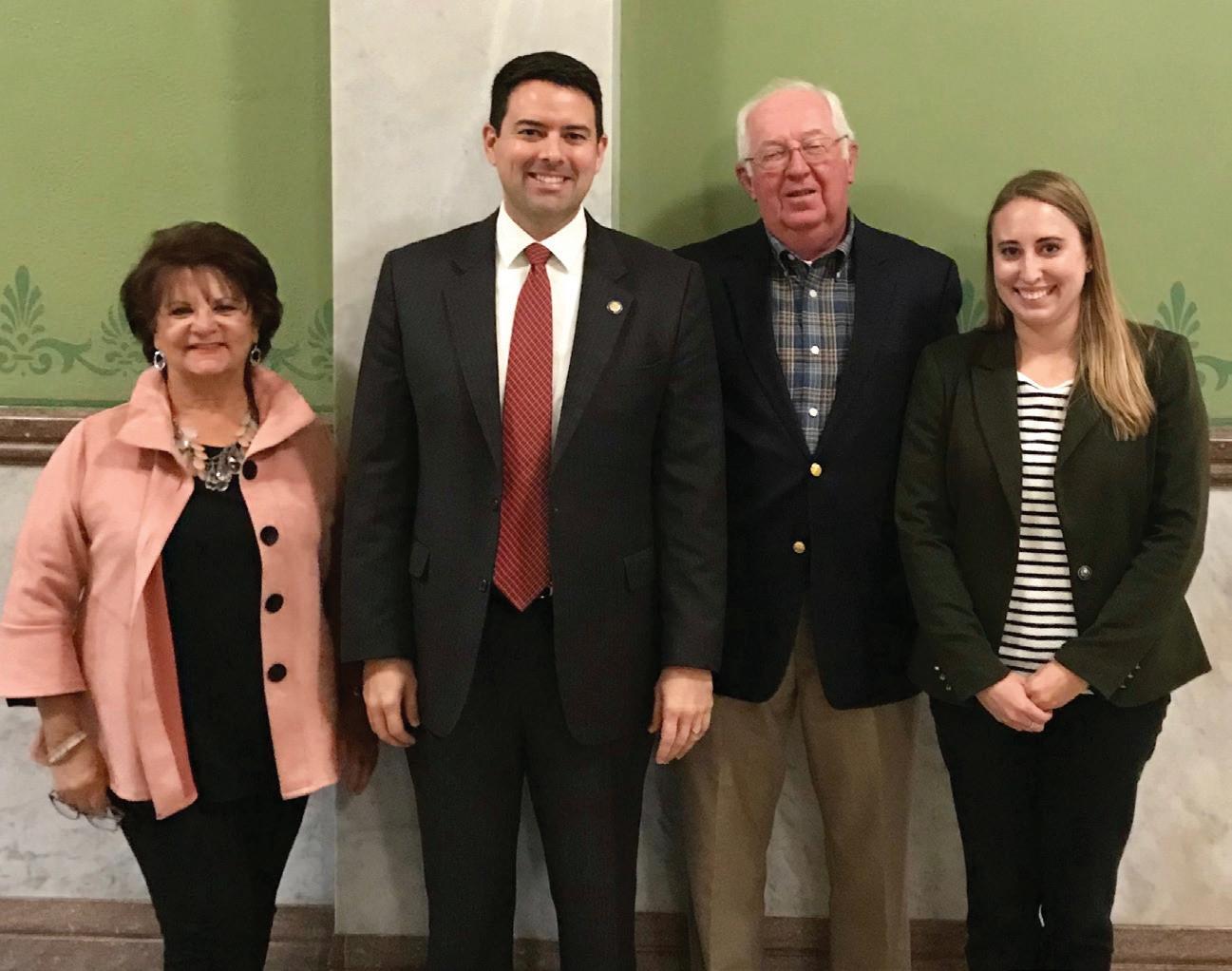
In 2021, as nonprofits acclimated to the new normal, the Foundation’s advocacy work continued to evolve to address changing needs within the community. The Foundation regularly met with local, state, and federal officials to update them on community needs and the programs, services and resources being provided. The Foundation engaged county and city officials monthly to stay updated on both community needs as well as the status of pandemic relief as it made its way into state and local governments. At The Family Center, the Foundation hosted U.S. Senator Sherrod Brown for a tour of the facility and a roundtable discussion with leaders from local agencies about the homelessness and housing issues within Hancock County.
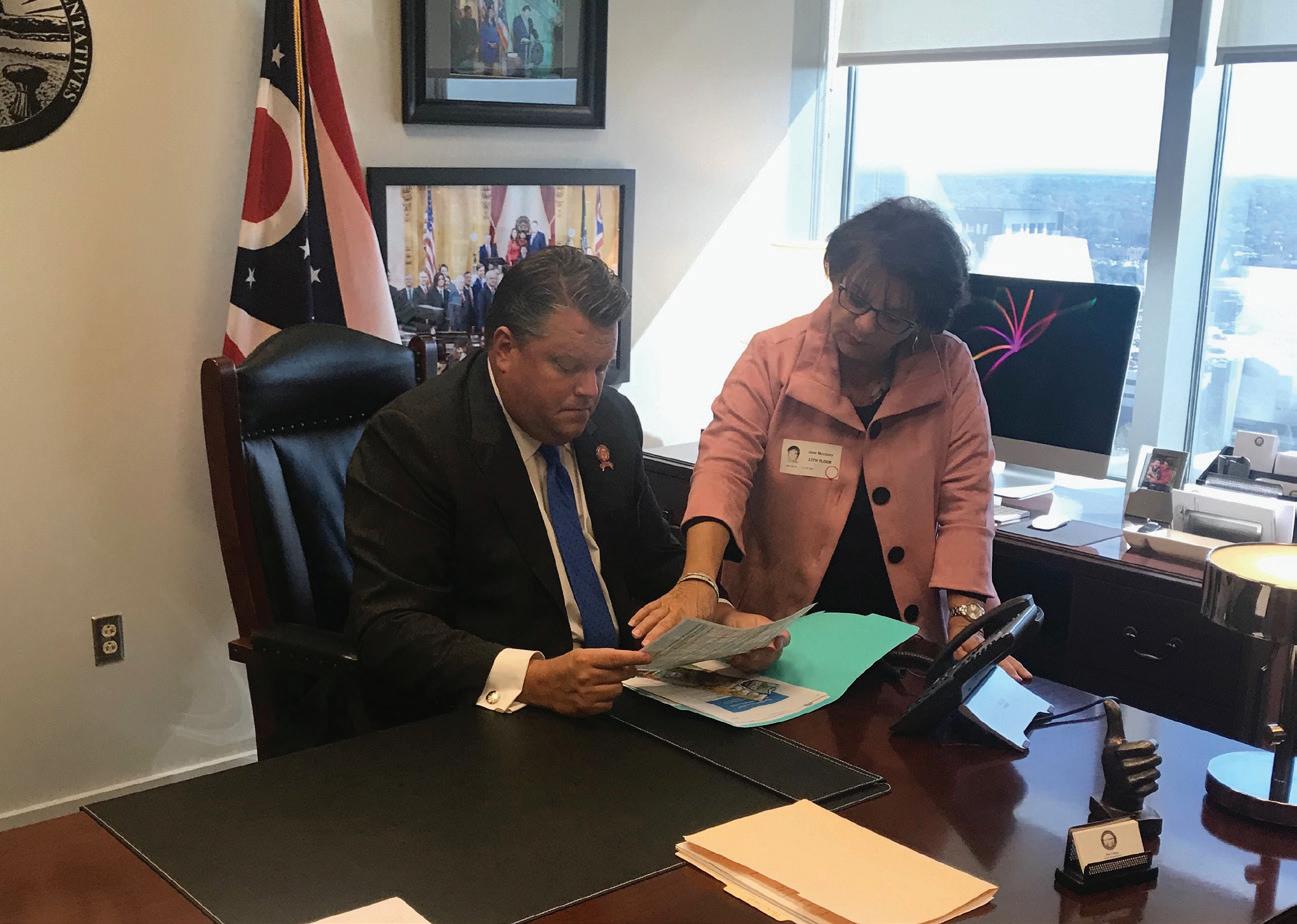
Streams of Success
The Blanchard River Watershed Partnership also had to pivot, but their commitment to advocacy remained as board members and staff participated in the Foundation’s virtual advocacy programs and coaching sessions during the pandemic. BRWP partnered with the West
Central Ohio Land Conservancy to host a virtual watershed tour "Conservation and Agriculture: Where Land Meets Water" featuring farmlands, wetlands and waterways of Northwest Ohio. Local and state elected officials attended, and it served as a springboard for advocacy for both organizations.
Through 2021, the Foundation continued to support nonprofit advocacy work through educational programs, coaching and helping nonprofits access public funding. After seeing success helping nonprofits access pandemic funding, Jennifer began researching public funding opportunities that would allow organizations to access funding tied more closely with their mission area including housing, food security, domestic violence, the arts, mental health and the environment.
During this phase of work, BRWP began to narrow its advocacy efforts to focus on one project they identified years early: the ecological restoration of the Riverside Dam. BRWP held meetings with Mayor Muryn and presented at Findlay City Council meetings to educate local elected officials about the benefits of the potential project. Through their efforts, BRWP received its first round of public funding for the Riverside Dam project from the City of Findlay. In 2022, the Hancock County Commissioners also made a funding commitment for the second phase of the project which is expected to get underway later this year.
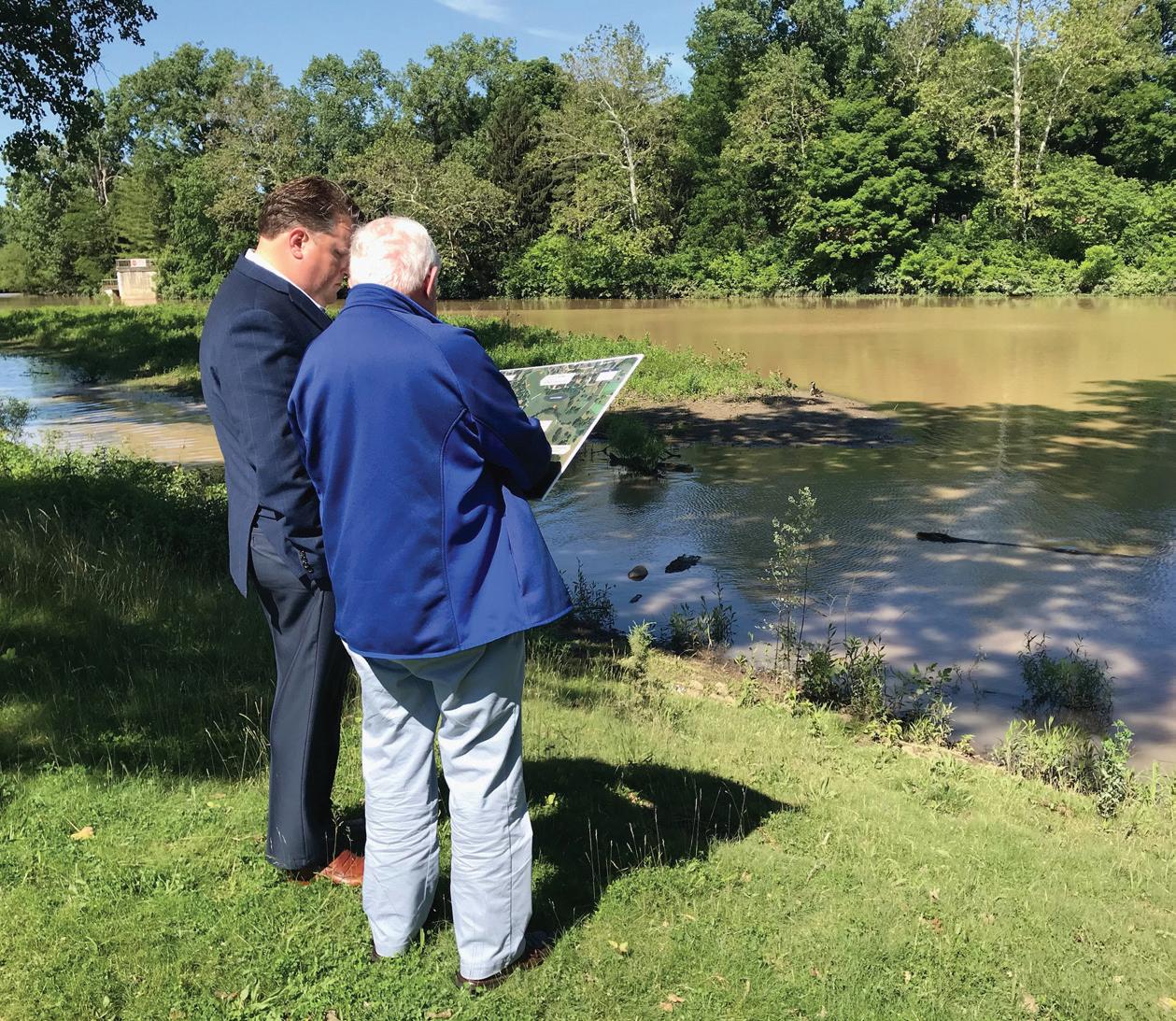
Through BRWP’s understanding and commitment to advocacy, they are in the midst of their largest community project in the history of the organization. “BRWP’s advocacy work through The Community Foundation has provided a framework to help us sustain our advocacy work long-term and opened up new opportunities allowing us to more effectively fulfill our mission,” said Lauren Sandhu, Watershed Coordinator.
“The Community Foundation’s advocacy work has been transformational for Findlay’s nonprofit sector. I value my partnership with the Foundation and the nonprofits I’ve worked with to use advocacy to help maximize our community impact and address our community’s most pressing needs.” Mayor Christina Muryn, City of Findlay
The Riverside Dam project is expected to be funded almost entirely with public funding secured by advocacy work through The Community Foundation. BRWP has met with representatives from the National Oceanic and Atmospheric Administration, the Ohio Department of Natural Resources, the Environmental Protection Agency and more with letters of support from local, state and federal elected officials as well as state agencies and departments. This is just one example of the impactful work nonprofits are doing through advocacy. Many nonprofits are engaging in varying degrees of advocacy work from reading the new advocacy newsletter, to attending programming about getting started, to advocating for their missions with elected officials and securing public funding. The West
Central Ohio Land Conservancy recently visited the Statehouse to advocate for more funding for farmland preservation in Ohio’s biennial operating budget. Christian Clearing House became the first nonprofit in Ohio to have their entire board certified through the Ohio Attorney General’s Charitable University program. Black Heritage Library and Multicultural Center received state funding to digitize their collections for easier access.
There are many more examples of the success nonprofits are finding with advocacy work. Through July 2023, the Foundation has helped Hancock County nonprofits secure more than $6.9 million in public funding in less than three years. Following this successful financial impact, The Community Foundation heard from nonprofits, elected officials, and community leaders about the need to continue this important work in the community. Nonprofit leaders continue to voice their support for the continuation of nonprofit advocacy efforts and building the capacity of nonprofits to successfully engage in advocacy.
Through consultation with leading advocacy organizations and foundations including the Council on Foundations, Grantmakers for Effective Organizations and BoardSource, the Foundation studied other models by which foundations have become advocacy leaders in their communities. Through education and awareness, capacity building, public funding, and government partnerships the Foundation has developed relationships and resources to be well-positioned to continue growing on the recent successes for many years to come.
